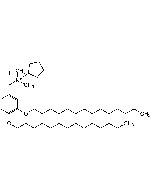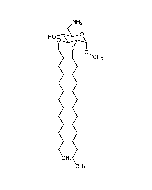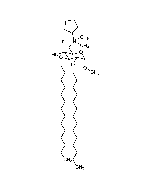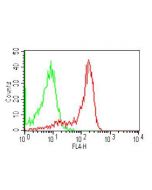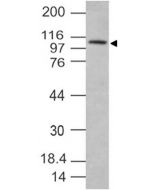Cookie Policy: This site uses cookies to improve your experience. You can find out more about our use of cookies in our Privacy Policy. By continuing to browse this site you agree to our use of cookies.
AdipoGen Life Sciences
anti-TLR4 (human), mAb (ABM19C4) (R-PE)

| Product Details | |
|---|---|
| Synonyms | Toll-like Receptor 4; TOLL; hToll; CD284; ARMD10 |
| Product Type | Monoclonal Antibody |
| Properties | |
| Clone | ABM19C4 |
| Isotype | Mouse IgG2bκ |
| Immunogen/Antigen | Recombinant human TLR4 protein (aa 45-320). |
| Label/Conjugates | R-PE |
| Application |
Flow Cytometry: (1-2μg/106 cells). |
| Crossreactivity | Human |
| Specificity |
Recognizes human TLR4. |
| Purity | Protein G purified. |
| Concentration | 0.2mg/ml |
| Formulation | Liquid. In PBS containing 0.05% sodium azide. |
| Isotype Negative Control | |
| Accession Number | O00206 |
| Shipping and Handling | |
| Shipping | BLUE ICE |
| Short Term Storage | +4°C |
| Long Term Storage | +4°C |
| Handling Advice |
Do not freeze. Protect from light. |
| Use/Stability | Stable for at least 6 months after receipt when stored at +4°C. |
| Documents | |
| MSDS |
 Download PDF Download PDF |
| Product Specification Sheet | |
| Datasheet |
 Download PDF Download PDF |
TLR4 (Toll-like Receptor 4) is a member of the Toll-like receptor (TLR) family which plays a fundamental role in pathogen recognition and activation of innate immunity. It was the first TLR identified TLR in mammals and most studied member of the TLR family. TLR4 recognizes the active lipid A component of lipopolysaccharide (LPS) from Gram-negative bacteria in conjunction with LY96 (also referred to MD-2), CD14 and LPS-binding protein (LBP) and consequently mediates the innate immune response to bacterial lipopolysaccharide (LPS). Additionally, it is also involved in LPS-independent responses triggered by endogenous DMAPs, such as heat shock proteins (HSPs) or HMGB1. TLR4 signals via MYD88, TIRAP and TRAF6, leading to NF-κB activation, cytokine secretion and the inflammatory response in various cell types. In complex with TLR6, it was shown to promote sterile inflammation in monocytes/macrophages in response to oxidized low-density lipoprotein (oxLDL) or amyloid-β 42. TLR4-mediated inflammation, triggered by exogenous or endogenous ligands, is involved in several acute and chronic diseases, having a pivotal role as amplifier of the inflammatory response. The potency with which this TLR activates inflammatory pathways makes it an ideal target for therapeutic intervention and adjuvant development. A broad range of clinical studies have examined the adjuvant activity of TLR4 activators in vaccines against infectious and tumor antigens.





